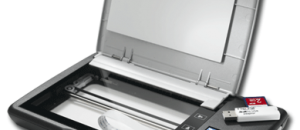 My, how (South) Korea has progressed: Once a country who’s products no one wanted; now a country who’s companies are besting American rivals. Sort of, anyway. Quoting “a person familiar with the situation”, The Wall Street Journal is reporting Samsung shipped “more than 20 million smartphones” in their quarter 3 of fiscal year 2011 (which ended on September 30). That means for the first time Samsung has bested Apple, who sold 17.1 million smartphones in their quarter 4 of fiscal year 2011 (which ended on September 24).
My, how (South) Korea has progressed: Once a country who’s products no one wanted; now a country who’s companies are besting American rivals. Sort of, anyway. Quoting “a person familiar with the situation”, The Wall Street Journal is reporting Samsung shipped “more than 20 million smartphones” in their quarter 3 of fiscal year 2011 (which ended on September 30). That means for the first time Samsung has bested Apple, who sold 17.1 million smartphones in their quarter 4 of fiscal year 2011 (which ended on September 24).
Update: An analyst firm based in the UK claims Samsung actually shipped 27.8 million smartphones in Q3 fiscal 2011. (As reported in BusinessWeek.) Dum, dum, dum.
Does that mean Android fans can rejoice? Android has already surpassed iOS in (world) market share but a sticking point in Android vs iOS always has been that Apple sells more smartphones than any other company; Android’s market share is thanks for multiple companies churning away at devices. Is this another win in the bank for Android? Yes and no.
First and foremost, the above-quoted 20 million is not an official figure. Samsung has made a decision to no longer reveal how many smartphones they ship per quarter. That doesn’t mean the number is wrong because WSJ is pretty good about having reliable sources; it is just something to keep in mind.
Secondly, the 20 million is all smartphones Samsung sells — not just Android handsets. That means the number is made up of Windows Phone, Bada OS, Symbian, Android, and any other smartphone platform Samsung devices run on. True, Android smartphones make up the largest chunk of that 20 mil, but they don’t make up all of it.
Lastly, and probably the most important point, is the fact that the 20 mil number is of smartphones shipped. Apple’s 17.1 mil is of smartphones sold. In practical terms, the difference is not too significant because – presumably – the smartphones are selling otherwise Samsung wouldn’t continue to ship them, not only because they would lose money (on consigned sales) but also because their retail partners would stop buying (for non-consigned sales) and quick smartphone release cycles means stock sitting on shelves could easily be obsolete very quickly. However, technically speaking, there is roam for uncertainty. For example, although unlikely, it is possible that only 10 million of the 20 million Samsung shipped have actually been sold.
So, keeping all points mentioned above in mind, join me in congratulating Samsung for a job well done. Love them or hate them, Samsung makes great electronics.
That said, I would like to provide some commentary on the issue of Apple vs Samsung.
When comparing the 20 mil vs 17.1 mil numbers, you must keep in mind the numbers are pre-iPhone 4S. In other words, the comparison isn’t fair: Samsung had newer devices competing with Apple’s 1+ year old device. While I am not saying Samsung devices cannot compete with Apple’s newer iPhone 4S, it is logical to assume Samsung devices had an advantage over Apple smartphones in the previous quarter because Samsung phones were newer (with newer tech); and also because some (many) people may not have purchased an iPhone 4 in anticipation of the iPhone 4S. It will be interesting to see Apple’s Q1 fiscal ’12 vs Samsung’s Q4 fiscal ’11 numbers, although it again won’t be a 100% fair comparison because Samsung will be in the middle of their flagship release cycle whereas Apple will have just released a new flagship device. (It should be noted, though, Samsung only recently brought their flagship Galaxy S II to American shores. So Samsung isn’t totally in the middle of the flagship release cycle.) Hey, no one said the world of business is simple.
Samsung may have shipped more smartphones than Apple in the past quarter, but Apple still made more money. A lot more money, in fact. For Q4 fiscal ’11, Apple reported $28.27 billion revenue and $6.62 billion after-tax net income. Samsung, on the other hand, had 41.27 trillion KRW (about $37.35 billion) in revenue and 3.44 trillion KRW (about $3.6 billion) in after-tax net income. (Note: The numbers from both companies are for total revenue and net income, not only for their smartphone divisions.) Although Samsung has higher revenue (they sell more stuff than Apple), Apple has a higher profit margin, resulting in higher after-tax net income. (This is largely in part due to Apple’s lower overhead costs, since Apple sells less different products, and Apple’s lower production/procurement costs due to higher economies of scale since they move larger volumes of the same products.) So while Samsung may sell/ship more goods than Apple, Apple’s business model – of not diversifying their products and having longer release cycles – results in higher profits.
Interesting stuff, if you ask me. Feel free to provide any thought and feedback in the comment section below.

 Email article
Email article



